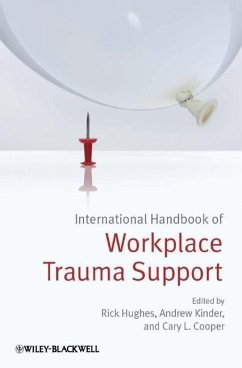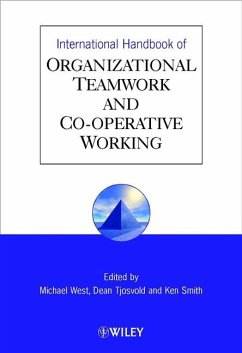
International Handbook of Work and Health Psychology

PAYBACK Punkte
123 °P sammeln!
Now in its third edition, this authoritative and highly successful handbook offers a comprehensive and up-to-date survey of work and health psychology. Bringing together a prestigious team of editors and contributors to focus on the applied aspects of work and health psychology, this new edition includes new chapters which cover emerging themes in this rapidly growing field.
Now in its third edition, this authoritative handbook offers acomprehensive and up-to-date survey of work and health psychology.
Updated edition of a highly successful handbook
Focuses on the applied aspects of work and healthpsychology
New chapters cover emerging themes in this rapidlygrowing field
Prestigious team of editors and contributors
Updated edition of a highly successful handbook
Focuses on the applied aspects of work and healthpsychology
New chapters cover emerging themes in this rapidlygrowing field
Prestigious team of editors and contributors














